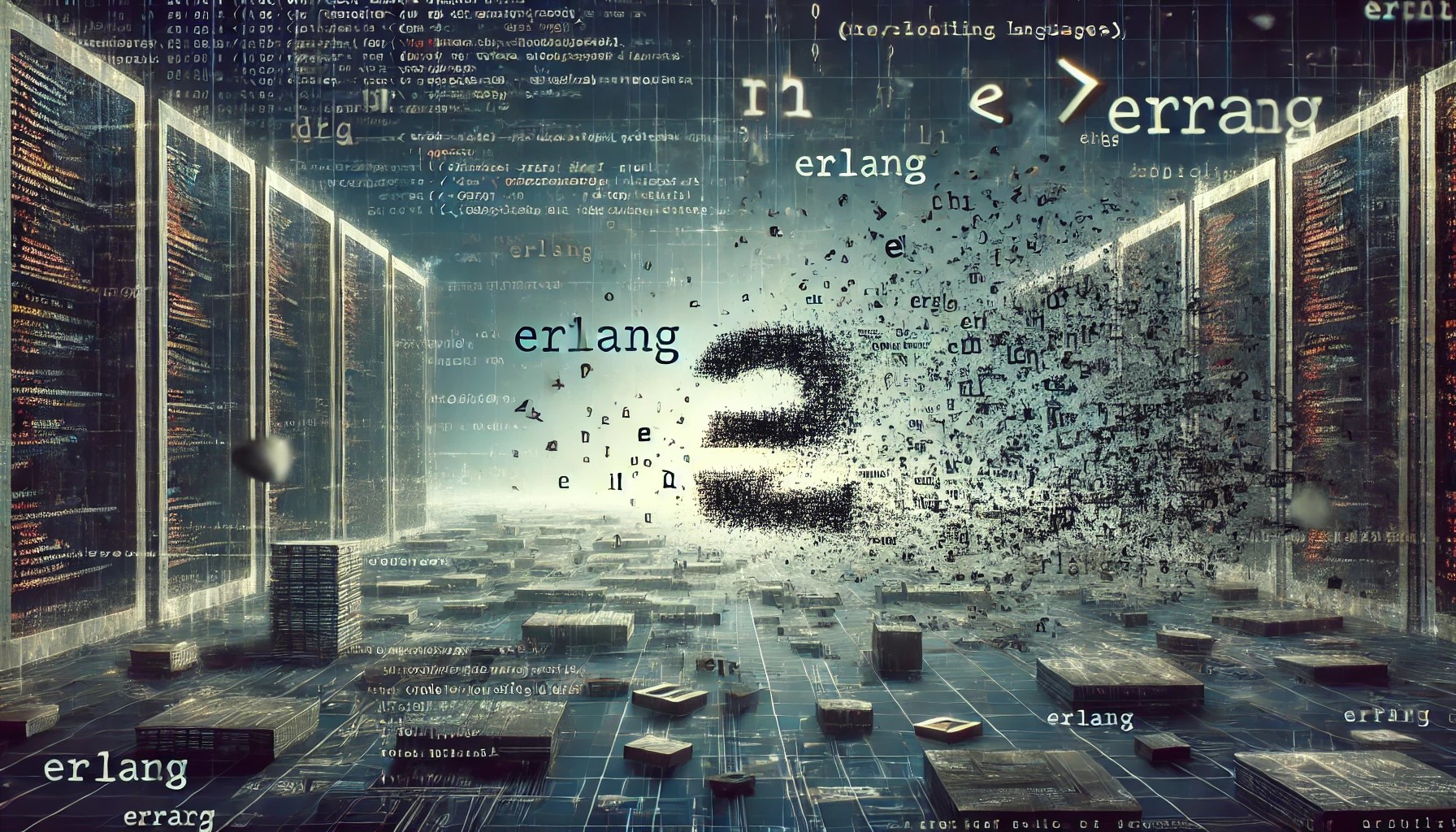Lost in Code: The Demise of 10 Dead Programming Languages - Part 8: Erlang

Erlang, a language designed for concurrency, fault tolerance, and distributed systems, may appear unusual on a list of "dead" computer languages. Erlang, developed by Ericsson in the 1980s for telecommunications systems, was designed to manage thousands of concurrent processes, making it perfect for real-time applications such as phone switches, messaging systems, and early online gaming. Its innovative approach to concurrency, which used lightweight processes and message-passing rather than shared memory, was ahead of its time and impacted several modern languages such as Elixir and Akka.
Despite its capabilities, Erlang was never widely adopted outside of its specific applications. Some developers were put off by the language's unique and hard grammar. Furthermore, the language's ecosystem and tooling did not progress at the same rate as more popular languages, making it more difficult for new developers or teams to adopt. As new languages with equal strengths and more modern, developer-friendly environments arose, Erlang's popularity dwindled.
While Erlang is not fully extinct and still powers certain vital systems (such as WhatsApp and certain Ericsson telecom infrastructure), its use is being surpassed by languages that provide similar functionalities but are more accessible. Elixir, for example, runs on the Erlang virtual engine (BEAM) and combines many of Erlang's features with more current syntax and tooling, prompting many developers to use it for new projects. In a world where developer experience and ease of adoption are critical to a language's survival, Erlang is gradually receding into the background, valued for its achievements but rarely picked for new advancements.
Erlang's story demonstrates that technical superiority alone does not guarantee a language's success or sustainability. To remain relevant in the ever-changing world of software development, you need a thriving community, a robust ecosystem, and continual evolution. While Erlang may not be fully extinct, its dwindling prevalence signifies the inevitable handover of the torch to languages capable of building on its history while resolving its limitations.
Creativity Meets Code.
Join our mailing list
© Copyright xklsv 2026. All Rights Reserved
xklsv